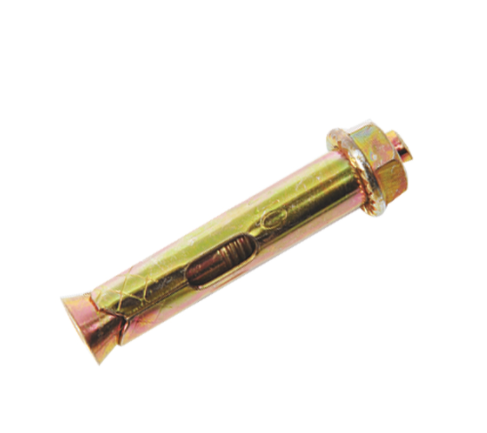The Ultimate Guide to Selecting Quality Stainless Steel Chemical Anchor Bolts
The Ultimate Guide to Selecting Quality Stainless Steel Chemical Anchor Bolts
Table of Contents
1. Introduction to Stainless Steel Chemical Anchor Bolts
2. Importance of Selecting Quality Chemical Anchor Bolts
3. Types of Stainless Steel Chemical Anchor Bolts
4. Material Considerations for Chemical Anchor Bolts
5. Installation Techniques for Optimal Performance
6. Maintena
Jul 11,2025

The Ultimate Guide to Selecting Quality Stainless Steel Chemical Anchor Bolts
Table of Contents
- 1. Introduction to Stainless Steel Chemical Anchor Bolts
- 2. Importance of Selecting Quality Chemical Anchor Bolts
- 3. Types of Stainless Steel Chemical Anchor Bolts
- 4. Material Considerations for Chemical Anchor Bolts
- 5. Installation Techniques for Optimal Performance
- 6. Maintenance Tips for Longevity
- 7. Common Issues with Chemical Anchor Bolts
- 8. Frequently Asked Questions (FAQs)
- 9. Conclusion
1. Introduction to Stainless Steel Chemical Anchor Bolts
Stainless steel chemical anchor bolts are essential components in the construction and industrial sectors, providing secure fastening solutions for various applications. These bolts are designed to anchor materials to concrete, ensuring structural integrity and safety. Understanding the characteristics, types, and installation processes related to these bolts is vital for achieving optimal performance in your projects.
2. Importance of Selecting Quality Chemical Anchor Bolts
Choosing quality chemical anchor bolts is crucial for several reasons:
Durability and Corrosion Resistance
Quality stainless steel chemical anchor bolts are highly resistant to corrosion, making them suitable for use in harsh environments, including coastal and industrial settings. This durability extends the lifespan of the anchors, ultimately reducing maintenance costs.
Strength and Load Capacity
Selecting high-quality anchor bolts ensures they can withstand significant loads and stresses without failure. Understanding load capacities is essential for safe and effective fastening.
Safety and Reliability
Using inferior quality bolts can compromise safety and lead to catastrophic failures. High-quality stainless steel chemical anchor bolts provide reliability and peace of mind in critical construction applications.
3. Types of Stainless Steel Chemical Anchor Bolts
There are multiple types of stainless steel chemical anchor bolts, each designed for specific applications.
Standard Chemical Anchors
Standard chemical anchors are commonly used for general applications where moderate loads are expected. They are easy to install and versatile.
High-Strength Chemical Anchors
These anchors are designed for heavy-duty applications, offering superior load capacities and enhanced structural support. Ideal for industrial settings, they ensure maximum safety and performance.
Expansion Chemical Anchors
Expansion anchors work by expanding within the concrete upon installation, providing a secure fit. They are suitable for use in solid concrete and offer reliable holding power.
4. Material Considerations for Chemical Anchor Bolts
The material of stainless steel chemical anchor bolts significantly impacts their performance and suitability for specific environments.
Types of Stainless Steel
The most common grades of stainless steel used for chemical anchor bolts include 304 and 316. Grade 316 offers enhanced corrosion resistance, making it ideal for marine and chemical processing environments.
Coating Options
Some chemical anchor bolts come with additional coatings to improve their resistance to environmental factors. Choosing the right coating can further enhance durability, particularly in corrosive settings.
5. Installation Techniques for Optimal Performance
Proper installation of stainless steel chemical anchor bolts is essential for ensuring their effectiveness and longevity.
Preparation of the Base Material
Before installing anchor bolts, ensure the base material is clean and free from debris. This preparation helps achieve a strong bond between the bolt and the substrate.
Mixing the Chemical Adhesive
Follow the manufacturer’s instructions for mixing the chemical adhesive. Proper mixing is crucial for achieving the desired strength and bonding properties.
Insertion of the Anchor Bolt
Once the adhesive is prepared, insert the anchor bolt into the drilled hole. Ensure it is positioned correctly, as misalignment can affect performance.
Curing Time
Allow sufficient curing time for the chemical adhesive to set before subjecting the anchor bolts to load. This time frame is critical for achieving maximum strength.
6. Maintenance Tips for Longevity
To ensure the long-term effectiveness of stainless steel chemical anchor bolts, regular maintenance is essential.
Inspections
Conduct periodic inspections to check for signs of corrosion, loosening, or any other issues that may compromise the anchors' integrity.
Cleaning
Regularly clean the bolts and surrounding areas to remove dirt, debris, or corrosive substances that may adversely affect the anchors.
Replacement of Damaged Bolts
If any anchor bolts show signs of damage or wear, it is vital to replace them immediately to maintain structural safety.
7. Common Issues with Chemical Anchor Bolts
Despite their reliability, users may encounter common issues with chemical anchor bolts.
Insufficient Bonding
Improper installation or inadequate curing can lead to insufficient bonding, compromising strength. Always adhere to installation guidelines.
Corrosion
While stainless steel offers corrosion resistance, it is not entirely immune. Regular inspections and maintenance can help mitigate this risk.
Load Failure
Overloading the bolts beyond their specified load capacity can lead to failure. Always evaluate the load requirements before installation.
8. Frequently Asked Questions (FAQs)
What are stainless steel chemical anchor bolts used for?
Stainless steel chemical anchor bolts are primarily used to secure structures to concrete surfaces, providing reliable fastening solutions in various applications, including construction and industrial settings.
How do I choose the right type of chemical anchor bolt?
The choice depends on factors such as the load requirements, environmental conditions, and the specific application. Consulting with a professional can help ensure the right selection.
Can chemical anchor bolts be reused?
While chemical anchor bolts can sometimes be reused, it is generally recommended to replace them if they show any signs of wear or damage.
How long do chemical anchor bolts last?
The lifespan of chemical anchor bolts varies based on environmental conditions and maintenance practices. High-quality stainless steel bolts can last many years with proper care.
What should I do if I notice corrosion on my anchor bolts?
If corrosion is observed, it is crucial to assess the extent of damage. Depending on the severity, you may need to replace the bolts or apply protective coatings to prevent further corrosion.
9. Conclusion
Selecting quality stainless steel chemical anchor bolts is pivotal for ensuring the safety and reliability of your construction projects. By understanding the types, materials, installation techniques, and maintenance practices, you can make informed decisions that enhance the performance of your applications. Regular inspections and adherence to best practices will not only prolong the life of your anchor bolts but also safeguard the structural integrity of your projects. Investing time and resources in choosing the right anchor bolts is an investment in the safety and durability of your construction endeavors.
ANTERIOR:

 中文版
中文版 English
English Русский
Русский عربي
عربي





